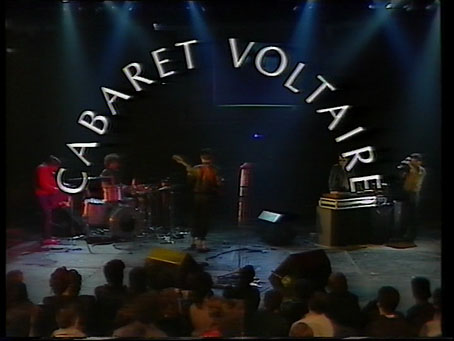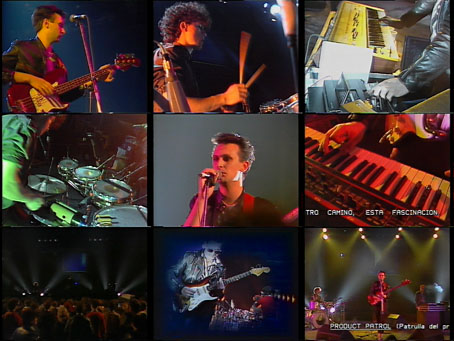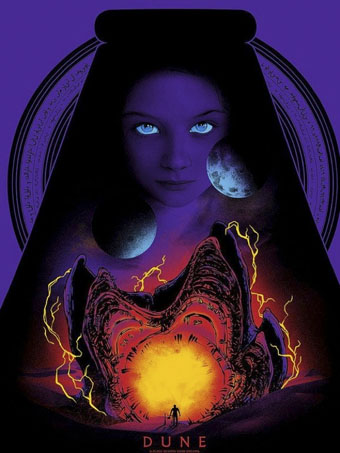Cabaret Voltaire appeared on Spain’s La Edad de Oro music show a few months after Tuxedomoon in November 1983. This was three months after I saw the Cabs at the Haçienda in Manchester, a concert you can see yourself in terrible sound and picture quality on a Cherry Red DVD. (Granted, the Haçienda video recordings were never intended for public sale but that taping looks particularly poor.) So it’s good to find this Spanish broadcast capturing the band performing songs from their recently released The Crackdown album. As with many of the other British groups given a slot on La Edad de Oro, this was a much more generous showcasing than was allowed by the UK’s music shows of the period, most of which tended to favour safe pop or rock acts. One reason Cabaret Voltaire formed their own video label, Doublevision, was to provide an outlet for visual works by groups that the major TV channels were ignoring. The tenth release on the Doublevision video label happened to be Tuxedomoon’s Ghost Sonata film.
The drummer for the Spanish broadcast, as on the Cabs’ albums, was Alan Fish, and the performance is mixed with shots of the band’s vaguely ominous film and video material. Both this show and the Tuxedomoon performance have translated lyrics running over the screen, a strange thing to see with Cabaret Voltaire who never printed their lyrics.
By coincidence a new Cabaret Voltaire compilation album has just been released, #7885 (Electropunk To Technopop 1978 – 1985), which Eugene Brennan reviews here. I’ve already got everything on it but it’s a good overview of the group’s evolution from post-punk weirdos to a formidable electronic-dance outfit. (Although the full-length 12″ tracks are the essential versions.)
Previously on { feuilleton }
• Tuxedomoon on La Edad de Oro, 1983
• Doublevision Presents Cabaret Voltaire
• Just the ticket: Cabaret Voltaire
• European Rendezvous by CTI
• TV Wipeout
• Seven Songs by 23 Skidoo
• Elemental 7 by CTI
• The Crackdown by Cabaret Voltaire
• Network 21 TV



